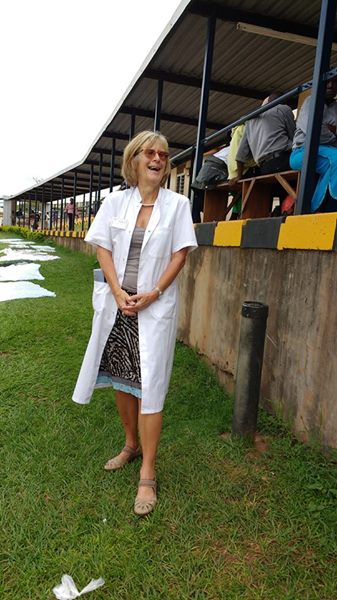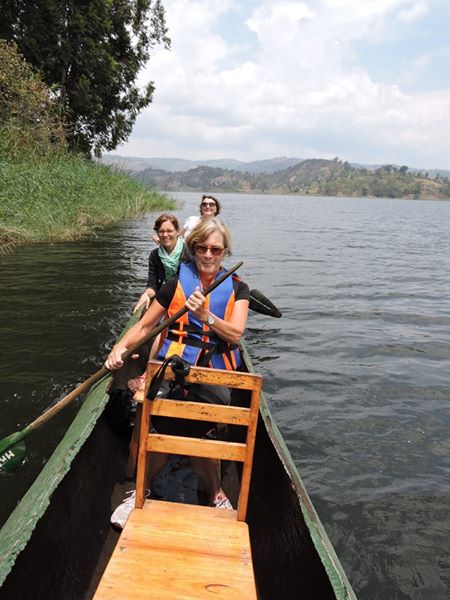
Blog » Mentoring in Uganda
We have been privileged to welcome mentors to Uganda as part of a Nurse Leadership Development programme which is supported by a partnership led by the University of Edinburgh and Makerere University (Palliative Care Unit) and funded by UKaid (DFID) through THET. Berit ca,me for several months and contributed to the loife of the MPCU team as well as her specific mentees. Here she talks of her experience.
'The opportunity to work in a completely different environment came right at the end of my working life. I have worked as a specialist palliative care nurse in London since 1989 and have retired three times! On my retirement from the NHS I said that my dream was to work in Africa. I never thought the dream would become true.
But here I am in Kampala. It is certainly both a professional and personal challenge. At a personal level it is about daily living – shopping, travelling, risk taking, being in a minority, time keeping and just being here without my family. At a professional level there is a range of challenges, such as the balance between being supportive and paternalistic, adapting the UK knowledge and experience with so far only quite a superficial understanding of the Ugandan reality.
It would be easy to focus on the lack of resources, training needs, perceived inefficiencies and lack of planning. However, as we talk about shared learning in mentorship relationships I would like to reflect on the learning I can bring back to the UK. I will leave the personal learning aside in this blog. Maybe in my next blog?
I strongly feel UK nurses could learn a lot from the Uganda. I am so impressed with the knowledge and experience the specialist palliative care nurses have of research, presenting papers and posters. In the UK we often say we don’t get the time to do this, but it is clear that it is a question of priorities. As many specialist nurses in the UK feel that there is a lack of career progression this could be a way forward. The investment in staff training and support in palliative care at all levels is remarkable. You visit a small hospital far from Kampala. The palliative care office is the size of a cupboard and there are the palliative care training certificates of the staff on the wall!
The nurses also have a huge sense of pride in their work. One particular image comes to mind of a palliative care nurse in small hospital proudly showing us the locked wooden cupboard for the morphine. Their resilience to work with limited resources with patients who are very ill, far from hospitals is outstanding. As a visitor you think the presenting patient and his/her needs are overwhelming, but after a consultation with the palliative care nurse you realize that a lot can be done and you see the relief of the patient and the family. This could be prescription for morphine, information about the illness, support available at home.
Finally, and I never thought I would say this as a nurse without a faith, but the prayers and in particular, the singing at the beginning of a working day or meeting is powerful. It gives you time to reflect, focus and feel part of that particular group.
A big thank you to all the nurses, clinical officers, doctors and volunteers I have met in Uganda.'
Thanks so much Berit; haste ye back!!!





